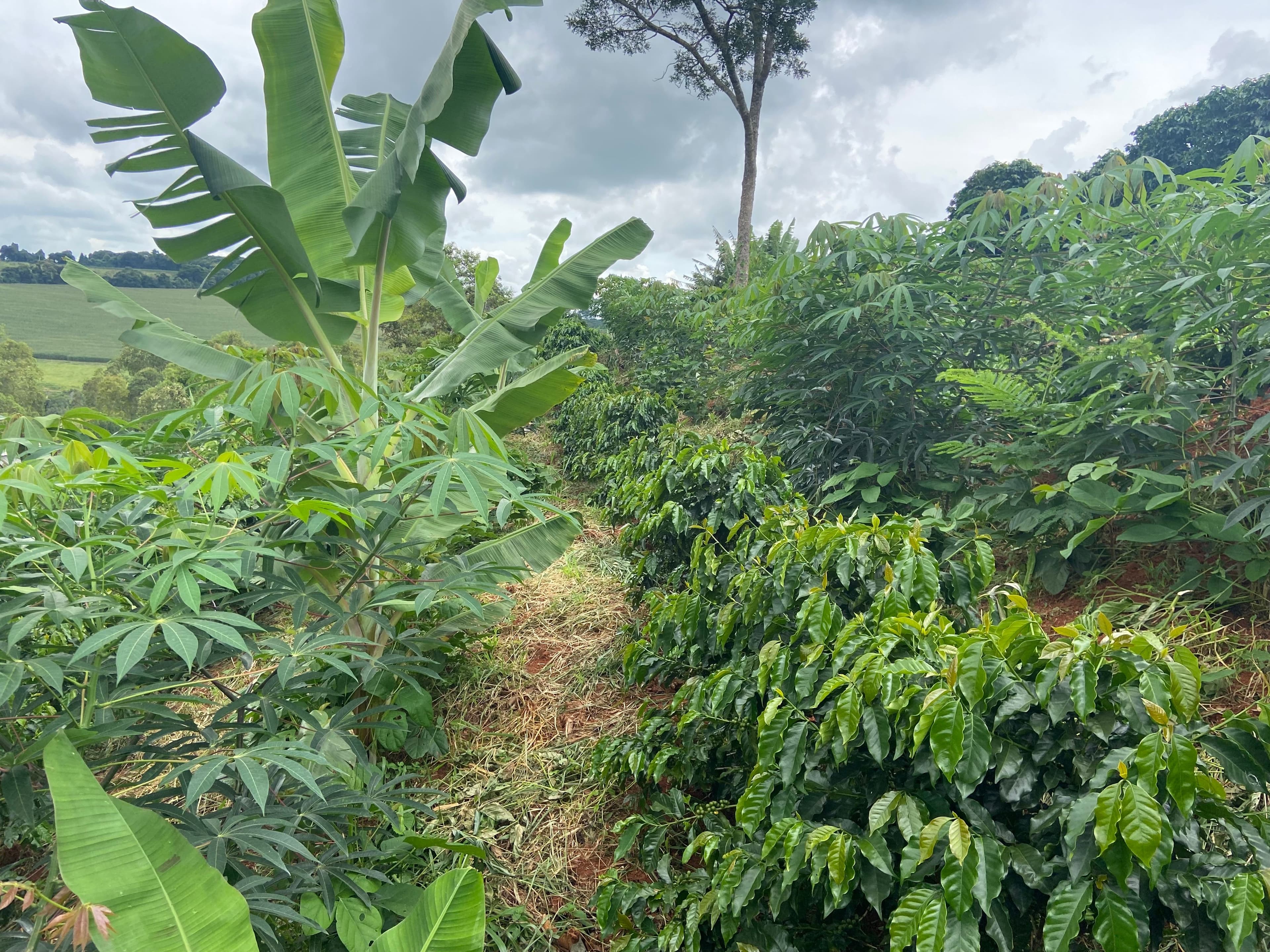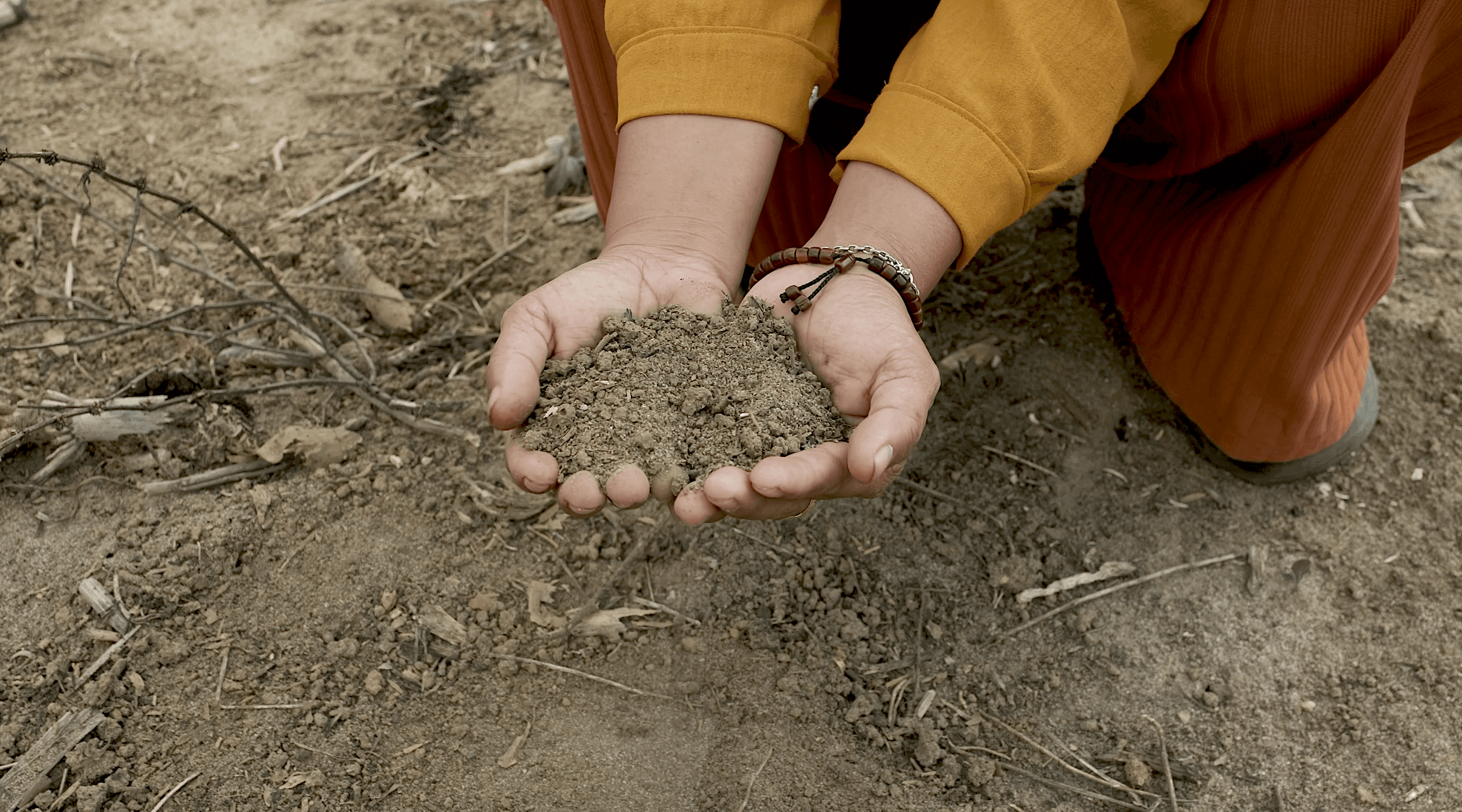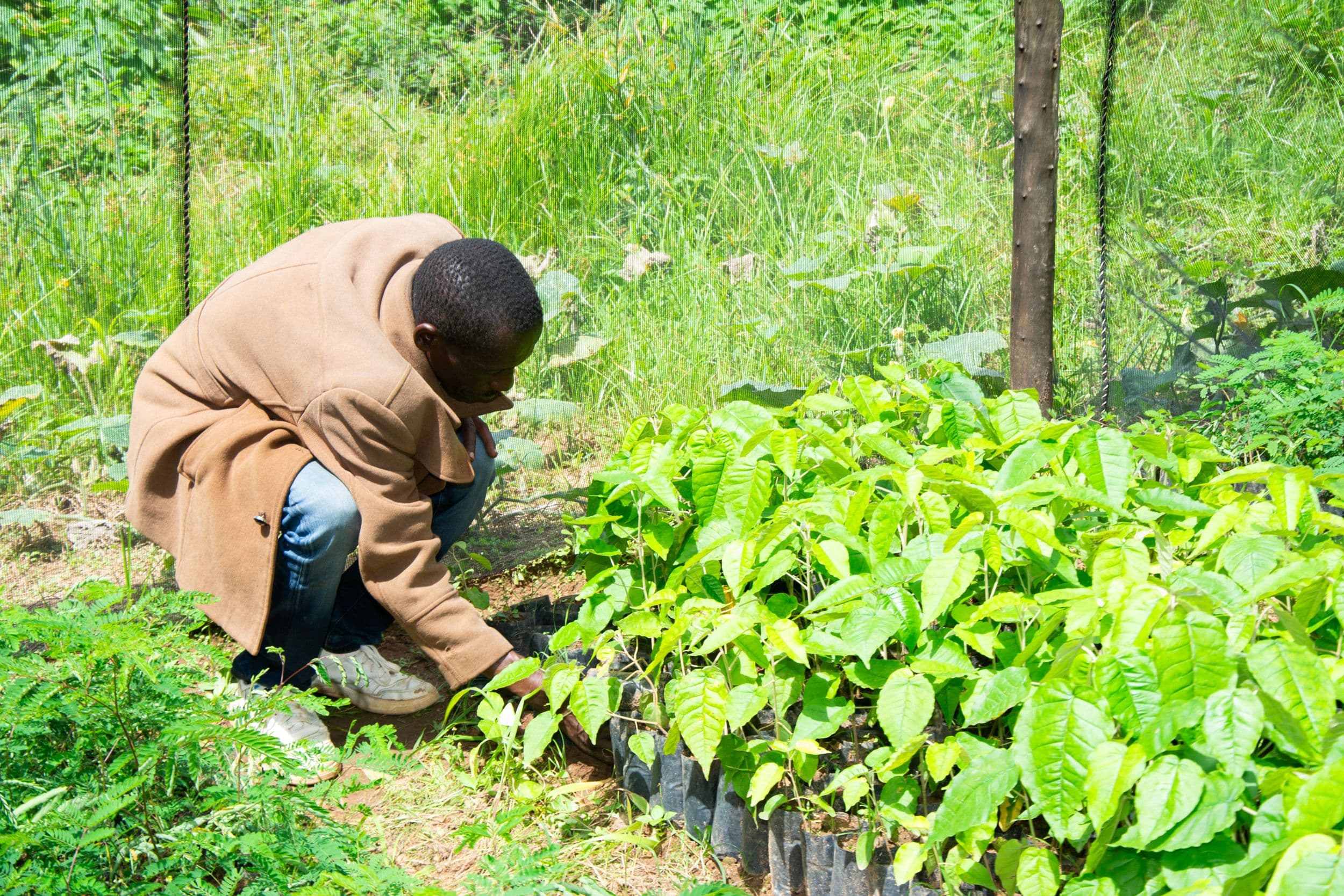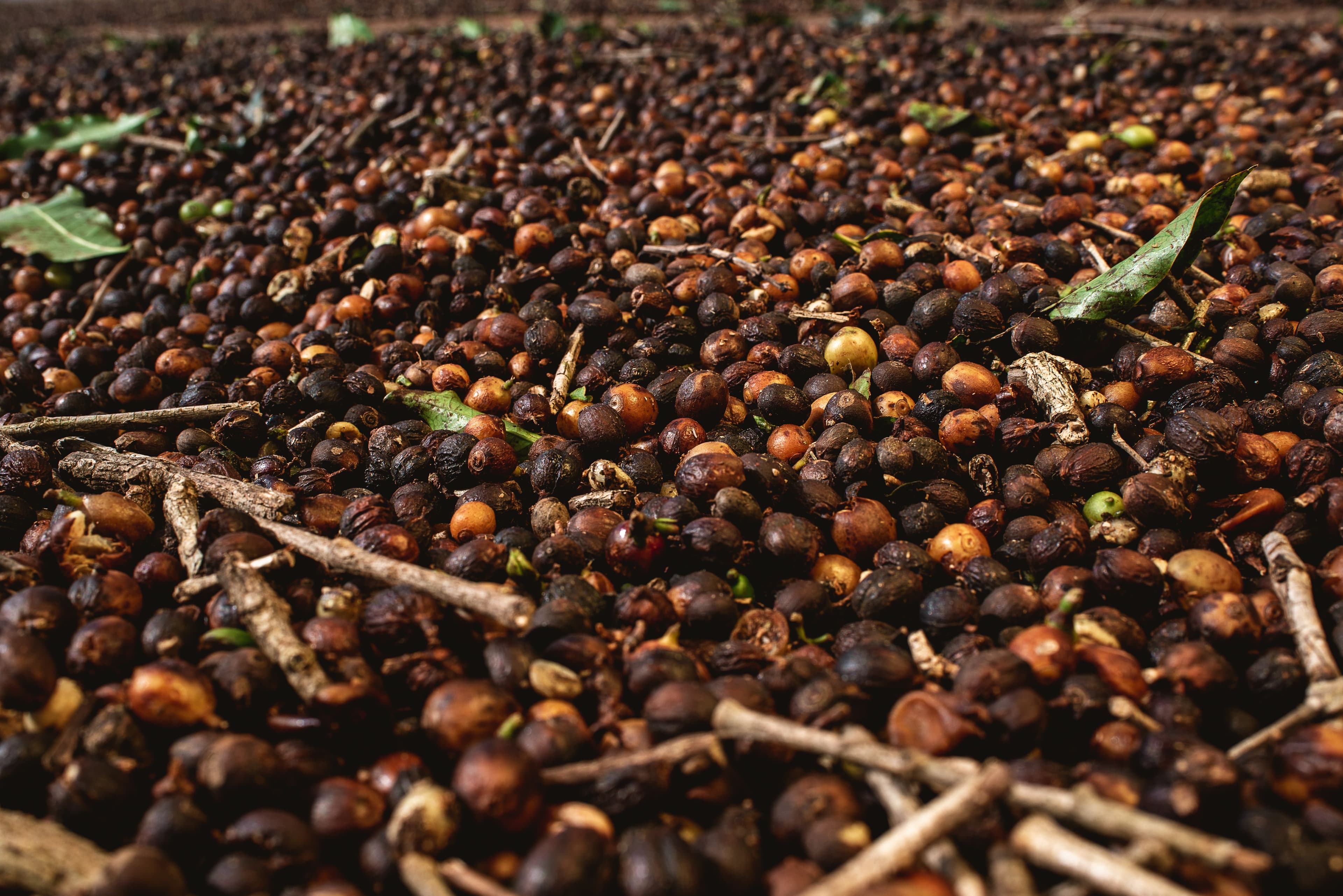aCLIMAtar, the new online platform developed to keep farms suitable for coffee growing
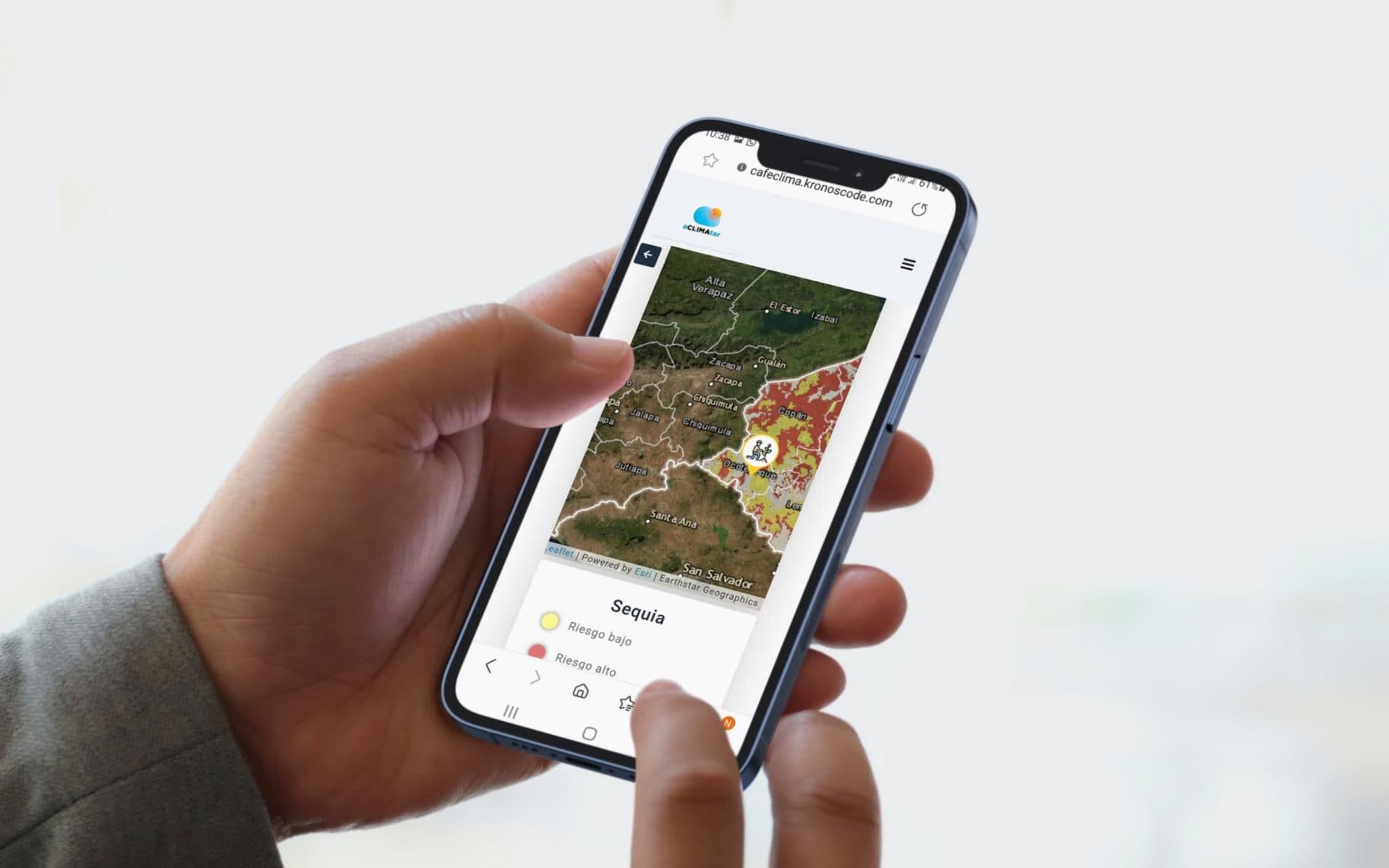
The Alliance of Bioversity International, the International Center for Tropical Agriculture (CIAT), and Hanns R. Neumann Stiftung (HRNS) have launched “aCLIMAtar”, an online platform that allows users to explore the coffee regions of their interest via an online map and take proper action to face production risks caused by climate change.
“After the successful experience of CIAT, Rikolto and World Cocoa Foundation (WCF) in developing an online platform that provides climate information about the cocoa-growing territories in Central America and the Caribbean, HRNS partnered with CIAT to adopt this platform in Central America for coffee as well”, explains Pablo Ruiz, Executive Manager at HRNS in Central America.
The online platform compiles real-time climate information and provides users that usually do not have access to this information, such as smallholder farmers and technicians, with specific information on the current and future climate impacts of each region and data on climate suitability and future stresses for coffee. aCLIMATAR is free to use and is available in Spanish. Data on coffee is available for Honduras, El Salvador, Guatemala, and Nicaragua at the moment.
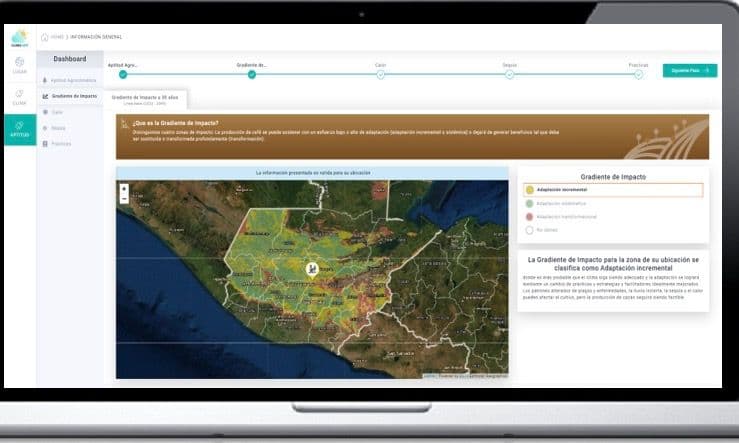
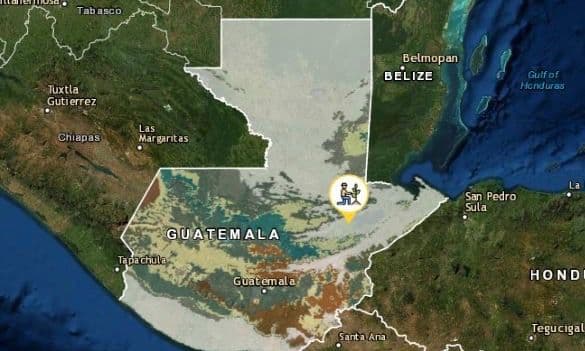
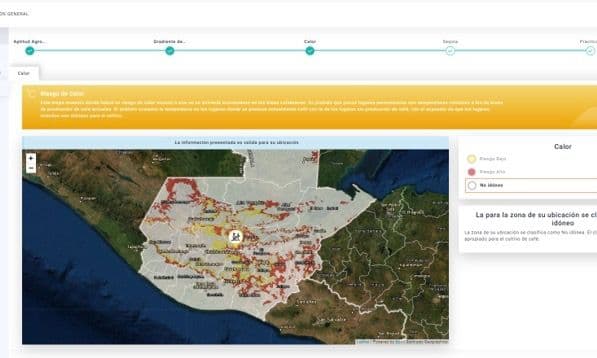
“While some regions in Central America will remain climatically suitable for coffee, others will require different levels of adaptation to bring coffee production forward and avoid losing significant territories” describes Jenny Wiegel, scientist at Alliance of Bioversity International and CIAT. Apart from providing real-time climate information, the platform delivers practical suggestions on which climate-smart agricultural practices should be implemented in the territory that is looked up. “This is what makes aCLIMAtar unique. The goal is to keep territories suitable for coffee production”.
All of the practices suggested by aCLIMAtar have been validated by the initiative for coffee&climate’s (c&c) toolbox. The c&c toolbox, developed by HRNS, is a compilation of field-tested tools, case studies, guidelines, and training materials. It equips farmers and farming communities with valuable information about farming techniques and practices that are climate resilient. The tools are identified and tested alongside with farmers, extensionists and some of the world’s leading climate experts.
How it works
Watch the video tutorial on how to use aCLIMAtar or follow these steps:
- Select the location of your farm using coordinates or by searching for the location on the map.
- View climate data, including current and future rainfall and overall temperature information for the region.
- Select the crop of your interest: cocoa or coffee.
- View climatic suitability data such as agro-climate zones, impact gradient, and heat and drought risks for the selected location.
- View and download the report with the compiled data and recommendations for climate-smart agricultural (CSA) practices prioritized specifically for the selected location. Note: the list of recommended practices is divided into “Most Recommended”, “Other Recommended” and “Additional”. The report contains a short description of why implementing each practice is recommended in that area and provides an estimate of how much each practice costs to implement.
For more information, download the aCLIMAtar presentation.
We hope to encourage the use of aCLIMAtar specifically among the new generation of coffee farmers. Youth are great at using technology. With access to real-time climate information and accurate predictions on weather behavior, smallholder farming families are equipped with the information and recommendations they need to start making between decisions at a farm level.
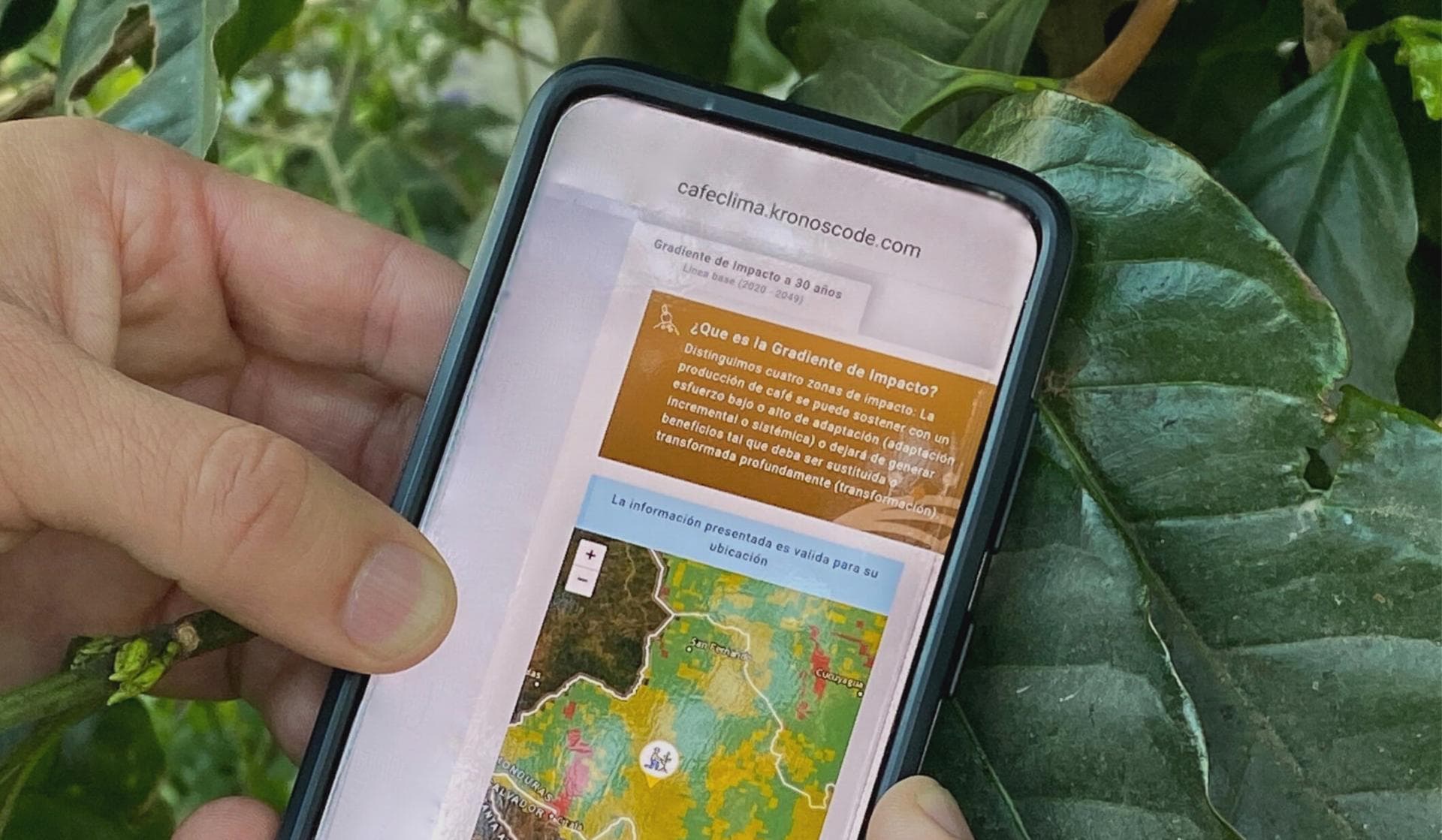
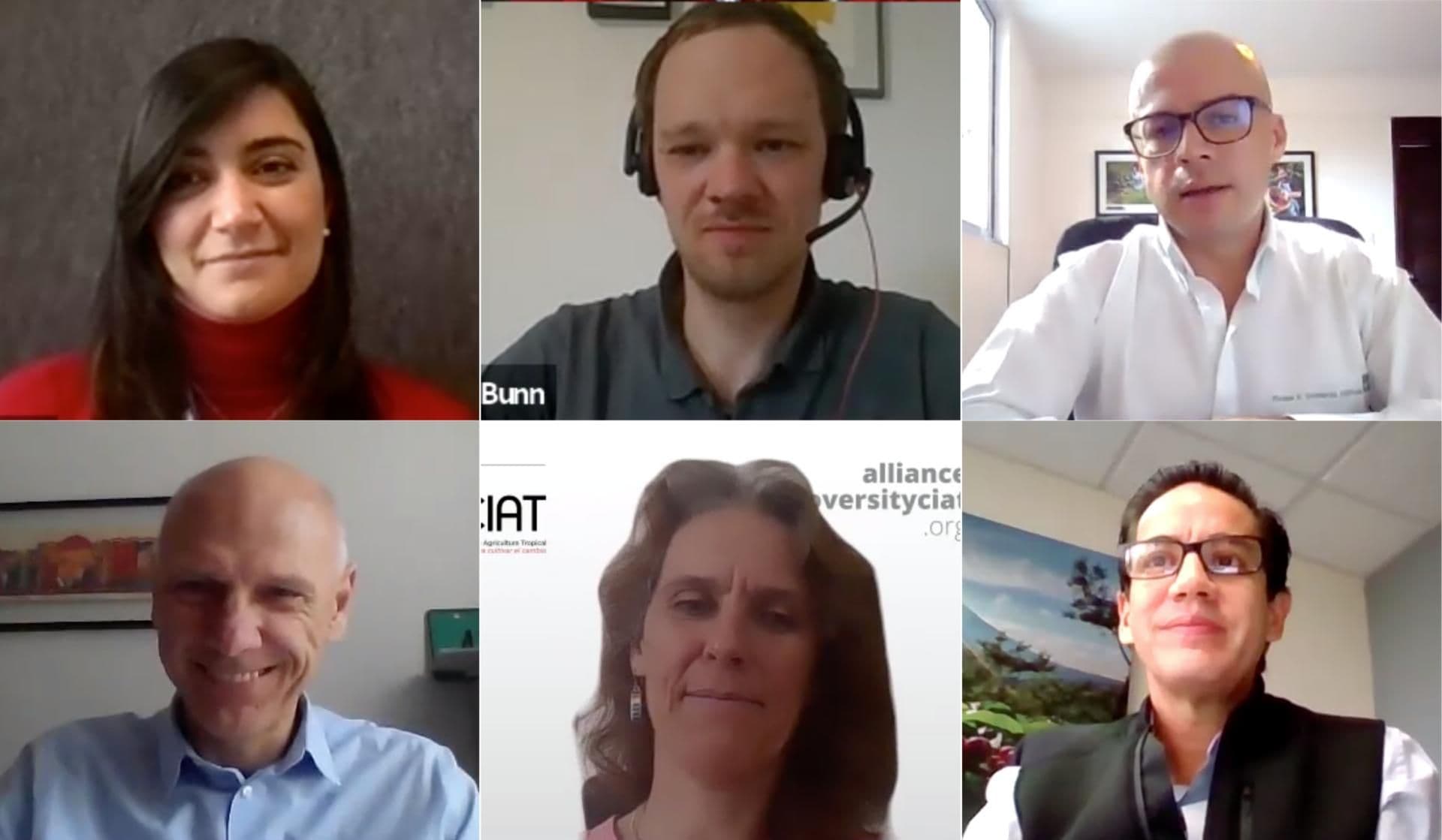
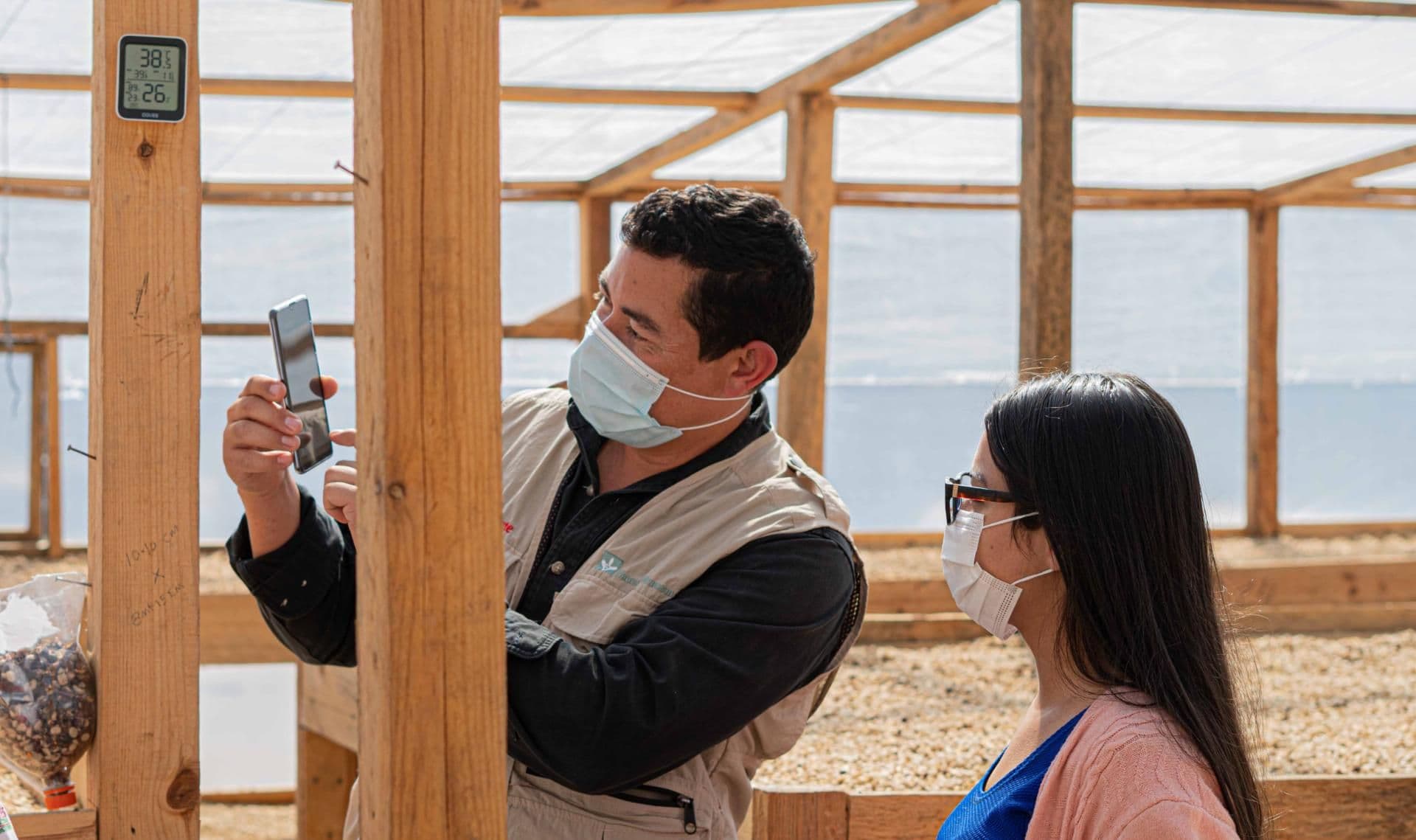
aCLIMAtar was officially launched during the “Technological Innovation and Climate Change” webinar, hosted by HRNS. During the webinar, special guests from the coffee sector including Michael Opitz – Managing Director at HRNS, Verónica Rossi – Sustainability Manager at Lavazza Foundation and René León – Executive Secretary at PROMECAFE, discussed about the importance of using technology as a tool to adapt to climate change. Current challenges faced by smallholders were highlighted, and what solutions are available were discussed.

